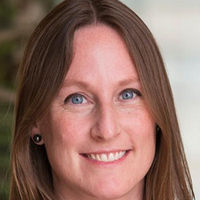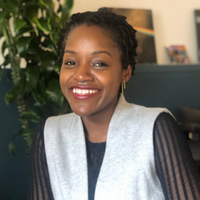
- 5 - 5:15 PM: Welcome Remarks and Overview of Course
- Session 1 – 5:15 - 6:30PM: Christopher Phillips, Associate Professor and Director of Graduate Studies, History, Carnegie Mellon University
- Session 2 – 6:45 - 8 PM: Lauren Herckis, Anthropology, Carnegie Mellon University
- Session 3 – 8:30 - 10 AM: Group Activity: Analyzing the Environment and Technology Case Study
Note: Students arriving more than 5 minutes late will not be assigned to a breakout group nor be able to complete the assignment sheet associated with this activity. Please arrive on time to be assigned a group and case study. This activity will also ask students to actively talk with one another to complete the activity. Be sure you are in a space that you can at least unmute and add to the conversation.
- Session 4 – 10:15 - 11:30 AM: Beatrice Dias, Assistant Professor of Digital Media, Learning, and Leadership in the Department of Teaching, Learning, and Leading, School of Education, University of Pittsburgh
LUNCH 11:30 AM - 1 PM
- Session 5 – 1 - 2:15PM: Angela E.B. Stewart, Assistant Professor, School of Computing and Information, and Research Scientist, Learning Research and Development Center, University of Pittsburgh
- Session 6 – 2:30 - 3:45PM: Tricia Douglas, PhD Candidate and Teaching Fellow, School of Design, Carnegie Mellon University
- Session 7 – 4 - 5:30 PM: Group Activity: Comparing Analyses of the Environment and Technology Case Studies
Note: Students arriving more than 5 minutes late will not be assigned to a breakout group nor be able to complete the assignment sheet associated with this activity. Please arrive on time to be assigned a group and case study. This activity will also ask students to actively talk with one another to complete the activity. Be sure you are in a space that you can at least unmute and add to the conversation.
- Session 8 – 8:30 - 9:30 AM: Comparing Disciplines and Perspectives
- Session 9 – 9:45 - 11:45 AM: Practicing Community Discussions on Inclusive Approaches: A Case Study Activity
Note: Students arriving more than 5 minutes late will not be assigned to a breakout group nor be able to complete the assignment sheet associated with this activity. Please arrive on time to be assigned a group and case study. This activity will also ask students to actively talk with one another to complete the activity. Be sure you are in a space that you can at least unmute and add to the conversation.
- Session 10 – 12 - 1 PM: Workshopping Your Stakeholder Profiles
Pre-Class Work: Prior to the Sunday morning session, students should have selected a topic from the provided list and reviewed the available resources. Using your prior resources and brainstorms from the Part 3 portion of the Speaker Session worksheets, students will begin workshopping key stakeholders related to their topic. This will allow for feedback and provide a foundation of the next step of the Identifying Stakeholder Perspective assignment after the weekend.

Christopher Phillips, Associate Professor and Director of Graduate Studies, History, Carnegie Mellon University

Lauren Herckis, anthropology, Carnegie Mellon University

Beatrice Dias, Assistant Professor of Digital Media, Learning, and Leadership in the Department of Teaching, Learning, and Leading, School of Education, University of Pittsburgh


The micro-course is open to all students, community members, and educators. Registration closed.
Pitt Students: This course requires a permission number that will be provided by contacting the instructor, Veronica Dristas, at dristas@pitt.edu.
